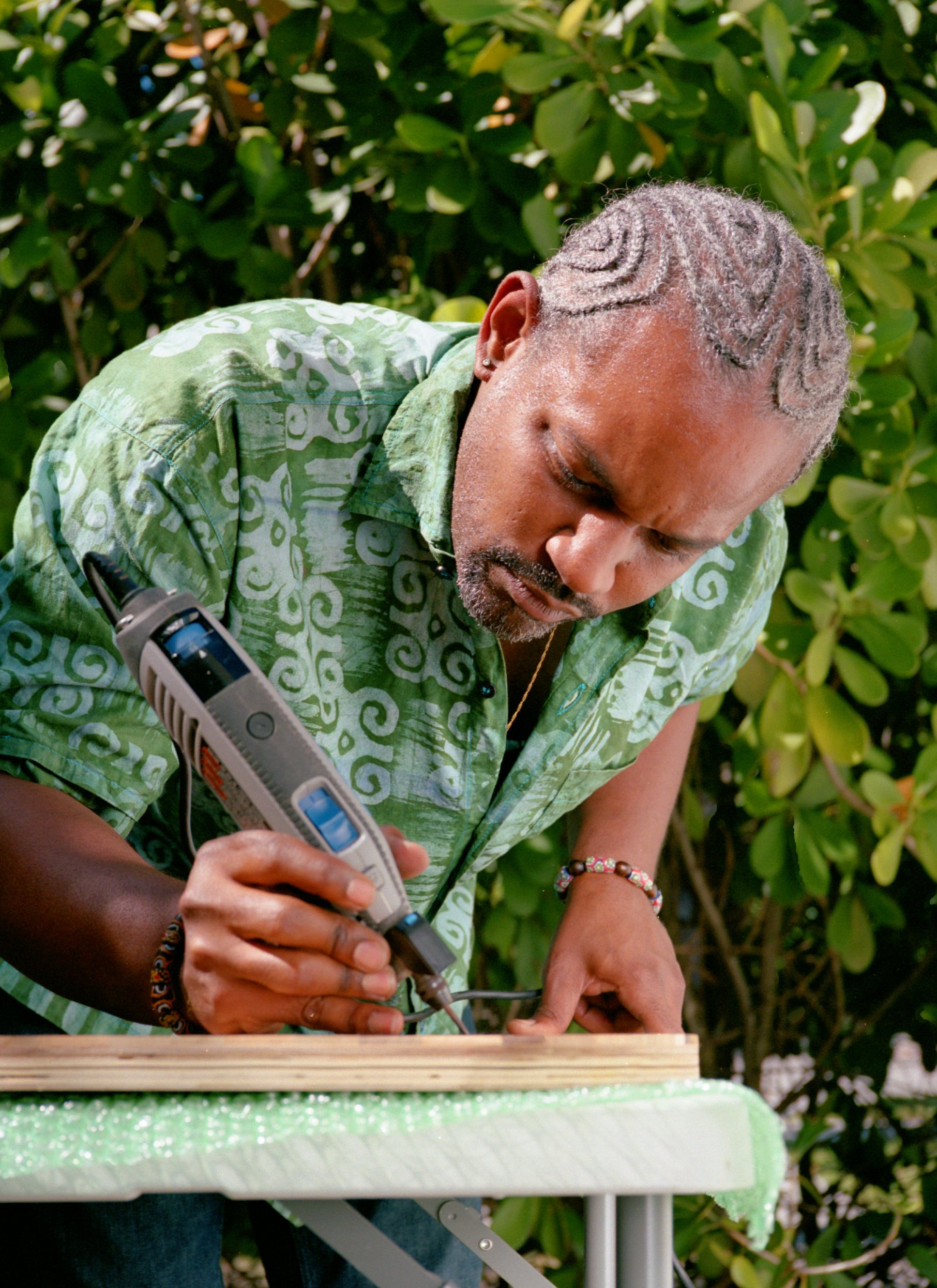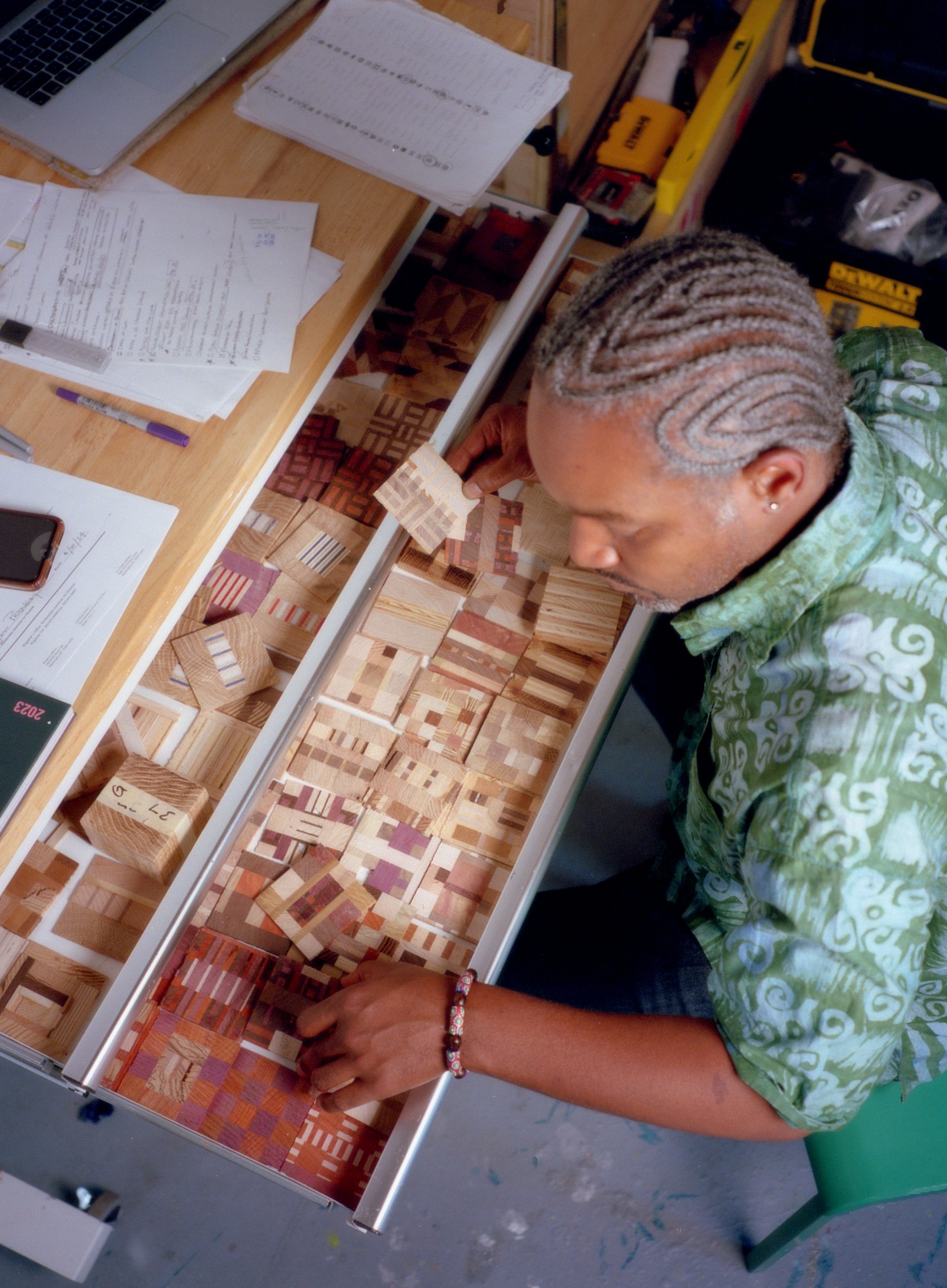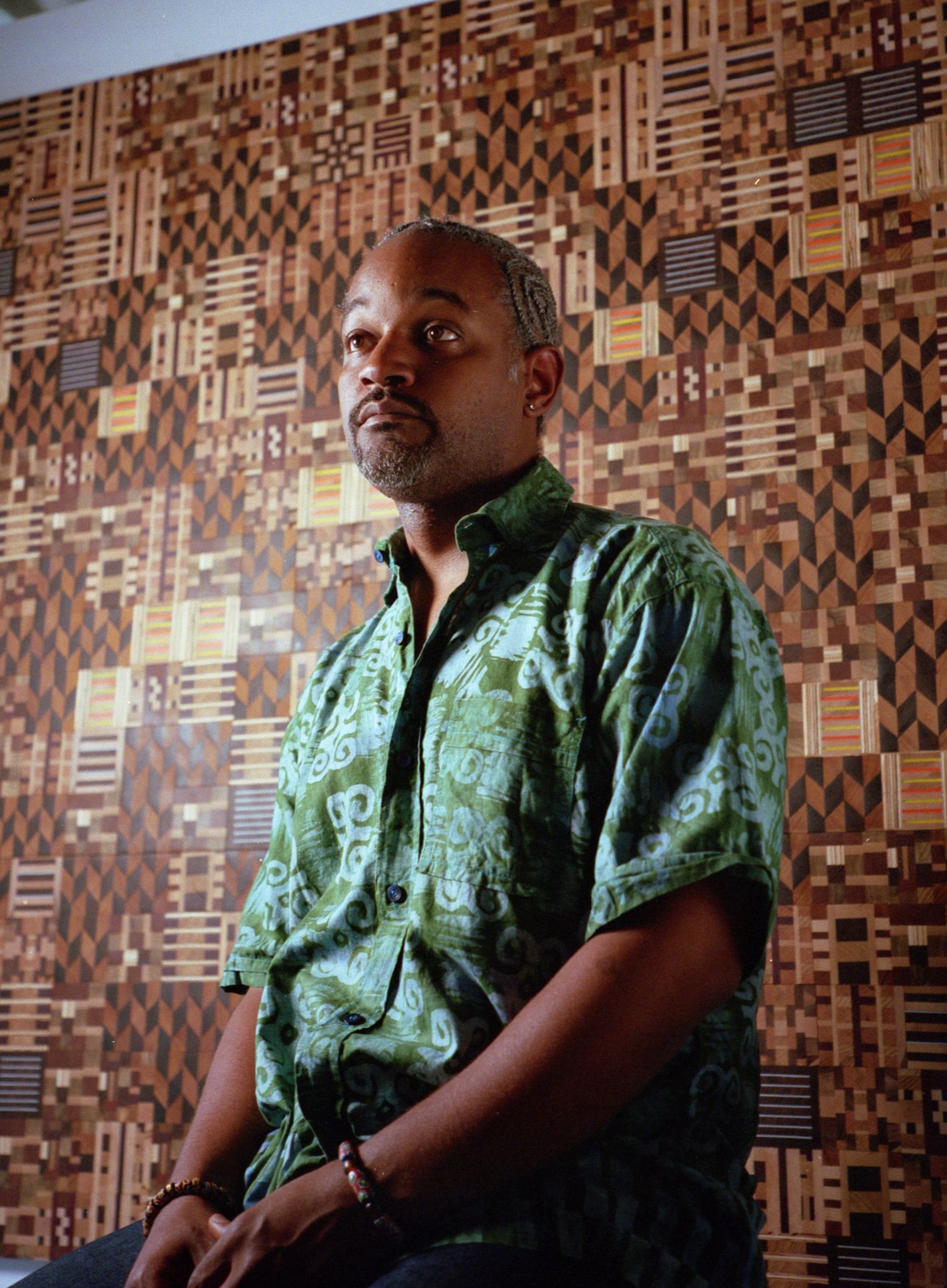April 2024
Ato Ribeiro
Film directed by Alexa Caravia for Fountainhead Arts
Wood is Ato Ribeiro’s primary medium, but he first arrived at the material through his training in printmaking, a trajectory that’s easy to trace once you realize he’s an artist for whom “everything informs the next thing.” In West African strip weaving traditions, Ribeiro intuited new ways of seeing. He was fascinated by the way such vivid and intricate textiles, namely Ghanaian Kente cloths, seemed to encode language. He brings all this to bear on his assemblage creations, in which he combines spare scrap wood to create monumental works of interlocked forms. These works offer a means of thinking with and through the complexities of the Black diaspora on both the collective and personal scales. Ribeiro spent part of his childhood in Accra, Ghana, and much of his work aims to reconcile the fact—the vertiginous experience—of belonging to two cultures. And so an autobiographical current runs through his work, though it hardly makes recourse to familiar methods of representation. You won’t glimpse figuration here. Rather, Ribeiro’s art revels in the possibilities of abstraction. He roots himself within and draws upon the vast spiritual resource of the lineage of Black practitioners who preceded him and whose labor is often invisibilized, absorbing the textures and rhythms of their forms, the fluency and flash of their patterns. Flash: a word which invariably quickens the legacy of the late Robert Farris Thompson, the historian of African art who took as his great theme the affinities that animate the aesthetic traditions of the Black diaspora. Those affinities compel Ribeiro’s art, which might be understood in part as a gesture of prostration before them.
For the duration of his residency in Miami, Ribeiro was concerned less with production per se than with rest, with being as “present as possible,” and with carving out and cultivating a discipline that stands apart from the rigors—the capitalist demands—of the contemporary art market. He knows well that any attempt at making must begin with living, which is a kind of art unto itself, an art that exceeds the habits of the studio. He makes room in his practice for his body, which is to say, he considers how best to nurture his physical and mental reserves. For Ribeiro, care, of the self and of the collective, is a liberatory endeavor, a portal to the pleasure, imagination, and beauty that the eye and mind encounter everywhere in his work.
Words by Ade Omotosho







